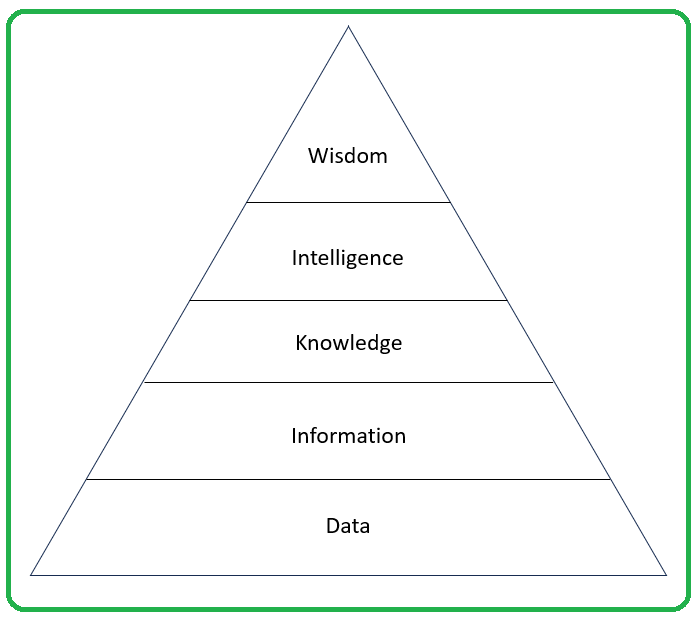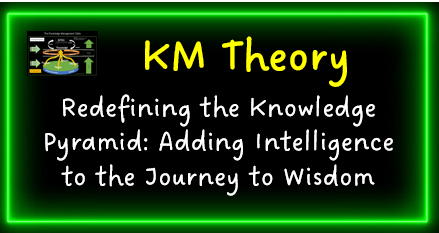Many of us are familiar with the classic pyramid illustration in Knowledge Management (KM), where the hierarchy starts with Data at the base, followed by Information, Knowledge, and culminates at the top with Wisdom. However, I'd like to propose an alternative perspective – one that inserts Intelligence as a crucial stepping stone before reaching Wisdom.
The reasoning behind this adjustment lies in the idea that Intelligence serves as an intermediary between Knowledge and Wisdom. Intelligence involves the active use of Knowledge, often characterized by problem-solving, reasoning, learning, and other cognitive functions. It's this application of Knowledge that can lead to the acquisition of Wisdom.
Some might contend that Intelligence is inherently encompassed within the concept of Wisdom. This opens up a fascinating conversation and invites various viewpoints. I'd be eager to hear your thoughts on this. Please feel free to share your comments below.
Collecting input to gauge the level of support for the current KM Pyramid (excluding Intelligence) is a thought-provoking endeavor.
In my view, this updated pyramid illustrates the
evolution of understanding more accurately, reflecting the progressive journey
from raw Data to the pinnacle of Wisdom.

More on “Human Intelligence”:
·
Cognitive
abilities and mental capacity.
·
Ability to
acquire, process, and apply knowledge.
·
Associated with
problem-solving, reasoning, learning, memory, and other cognitive functions.
More on “Human Wisdom”:
·
Deep
understanding of life and the ability to apply cognition and experience to make
sound judgments and decisions.
·
Involves
qualities such as empathy, compassion, emotional regulation, and a sense of
morality.
·
The ability to
consider the long-term consequences of one's actions.
·
One's ability to
integrate cognitive knowledge with emotional and social intelligence.

